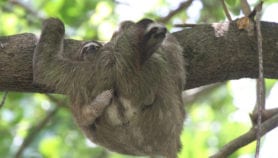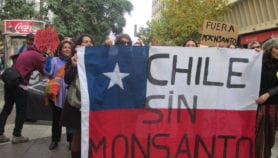By: Valeria Román
Send to a friend
The details you provide on this page will not be used to send unsolicited email, and will not be sold to a 3rd party. See privacy policy.
 |
[BUENOS AIRES] Indigenous communities from Argentina have urged the creation of a register of their traditional knowledge in a bid to stop foreign companies from using such knowledge for commercial gain without returning any benefits to local people.
A group of 44 indigenous leaders meeting in Buenos Aires last month signed a declaration calling on the National Institute of Industrial Property (INPI) — the government organisation responsible for implementing intellectual property laws — to set up such an initiative.
INPI director Mario Roberto Aramburu says that “the Institute is evaluating how the proposal could be carried out and is analysing what would be the best format” [for the register].
The proposal is that indigenous communities could choose to share the knowledge in the register free of charge, or could sell the rights to use the knowledge to other people or companies. The register would also provide a way for indigenous communities to prove their ‘prior knowledge’ of a particular technique if a company tried to take out a patent on its scientific basis. Indigenous communities from outside Argentina would also be allowed to register their intellectual property as part of the initiative.
“We approved the declaration because we want to stop our economic impoverishment while non-indigenous people enrich themselves with our knowledge”, says Sapallitan Pereyra, a member of the Tonocote group, a community of 4,000 individuals in the province of Santiago del Estero, in the north of Argentina.
“With the national register, we want to prevent the abuse and robbery of our traditional knowledge”, she says. The register would cover a variety of types of traditional knowledge, including the use of medicinal plants, music and images. The declaration was approved by representatives of 90 per cent of the more than one million indigenous people in Argentina.
According to Teodora Zamudio, a professor at the University of Buenos Aires School of Law and president of Prodiversitas, a non-governmental organisation that works to protect biodiversity, in making these demands, indigenous communities are simply calling for the proper implementation of existing laws designed to protect their historical and cultural knowledge.
“For centuries, indigenous communities have produced many intellectual creations,” she says. “But these creations do not fall into the same [legal] category as inventions. For this reason, indigenous production needs its own copyright category”.
Zamudio points out that many sandals, belts and other handicrafts sold in Buenos Aires carry the traditional designs of indigenous people in South America, but the business is carried out without the consent of those who developed these designs.
Similarly, she says, the Aymará group in northern Argentina has not received any benefit from music they have developed which is widely used in a form of psychotherapy.
Photo credit: Teodora Zamudio
More on Bioprospecting
News
Combining cassava species could lead to better crops
[SAO PAULO] Combining tissues from different cassava species may lead to a new method for improving t ...16/10/12
News
Biodiversity data gaps ‘need bridging’ to meet global targets
[HYDERABAD] Global biodiversit ...11/10/12
News
Meeting puts socioeconomic impact on biosafety agenda
[HYDERABAD] An international treaty meeting on biosafety has recommended to include the socioeconomic ...09/10/12
Feature
Guide and glossary to CBD
The Convention on Biological Diversity (CBD) has spawned a series of agreements and technical ...07/10/12








